by Lisa Cooke | Mar 4, 2015 | 01 What's New, Google, Listeners & Readers, Maps, Records & databases, Research Skills
 Recently I heard from Sue Neale, whose story offers a compelling reason to use Google Scholar for genealogy research! Read it below–then I’ll tell you a little more about Google Scholar.
Recently I heard from Sue Neale, whose story offers a compelling reason to use Google Scholar for genealogy research! Read it below–then I’ll tell you a little more about Google Scholar.
“I’ve been using computers for genealogy research (among other things) for about 30 years and am pretty good at finding most anything on the internet whether it pertains to genealogy or something else. It’s a continuous learning experience because computer, the internet and genealogy on the internet are always changing and updating.
[After hearing your seminars at RootsTech 2015], I tried out a couple of Google searches for my husband’s 3rd great-grandfather Silas Fletcher. Silas lived on Indian Key in the Florida Keys in the early 1820s.
My husband and I and our son visited Indian Key several years ago and the young lady who took us out in the boat had actually written her college thesis on Silas! Of course, we didn’t think to get her name or any other information. So I Googled “scholar paper Silas Fletcher’ and the first item on the search turned out to be her thesis!
I also found a second thesis on Indian Key and a research paper a third person had written–and they both contained information on Silas. In the footnotes I found references to deed books (book number and page number) that contained statements written by Silas, his wife Avis, their daughter Abigail and Mike’s 2nd great grandfather William H. Fletcher about their lives and movements in the Florida Keys.
With that information I went to Familysearch.org and found the deed books I needed for Monroe County. I was able to go find their statements very easily instead of having to ‘browse’ through the books on the off-chance I would find something (which I do if I don’t know the exact book where the record would be).
I can hardly wait to try out the rest of what I learned at your seminars to see what else I can find!”
Sue’s experience is a great example of using Google to dig for your family history. One little-known feature on Google is Google Scholar, which would help Sue and anyone else more easily find material like what she describes: doctoral dissertations, theses, academic papers and more. Your keyword searches in Google Scholar will target results from academic publishers, universities, professional societies and more.

Though scholarly literature gets a bad rap sometimes for being boring or highbrow, they do something genealogists love: THEY CITE SOURCES. Sue cleverly read the footnotes of the materials she found and they led her right to a key source she needed.
Here’s another resource she could find using the details found on Google Scholar in a Google Image search: a map of his community!

My newly-updated, revised book The 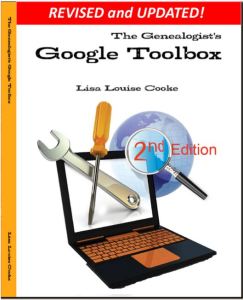 Genealogist’s Google Toolbox has an all-new chapter on using Google Scholar. Among other things, I show you advanced search strategies and how to use Google Alerts with Google Scholar for continuous updates on your favorite search results. Click here
Genealogist’s Google Toolbox has an all-new chapter on using Google Scholar. Among other things, I show you advanced search strategies and how to use Google Alerts with Google Scholar for continuous updates on your favorite search results. Click here
by Lisa Cooke | May 27, 2015
 We often mention fantastic how-to genealogy books on the Genealogy Gems podcasts and website. Here we’ve compiled a list of these, a checklist for your own genealogy reference bookshelf.
We often mention fantastic how-to genealogy books on the Genealogy Gems podcasts and website. Here we’ve compiled a list of these, a checklist for your own genealogy reference bookshelf.
(Our favorite pleasure reading picks, fiction and nonfiction, are on The Genealogy Gems Book Club webpage.)
Thank you for purchasing any books through our affiliate links. Your purchases help keep the Genealogy Gems podcast FREE.

 State Census Records
State Census Records by Ann S. Lainhart. It’s got everything you need to know about U.S. censuses taken by states and territories. From this guide, you’ll learn what is available in each state (year by year, often county by county), where it is available and what’s in these records. Though it lacks current online resources for state censuses, once you know about them, you can Google them to find any online records and indexes! Find this book referenced in a blog post about state census records here.
by Ann S. Lainhart. It’s got everything you need to know about U.S. censuses taken by states and territories. From this guide, you’ll learn what is available in each state (year by year, often county by county), where it is available and what’s in these records. Though it lacks current online resources for state censuses, once you know about them, you can Google them to find any online records and indexes! Find this book referenced in a blog post about state census records here.
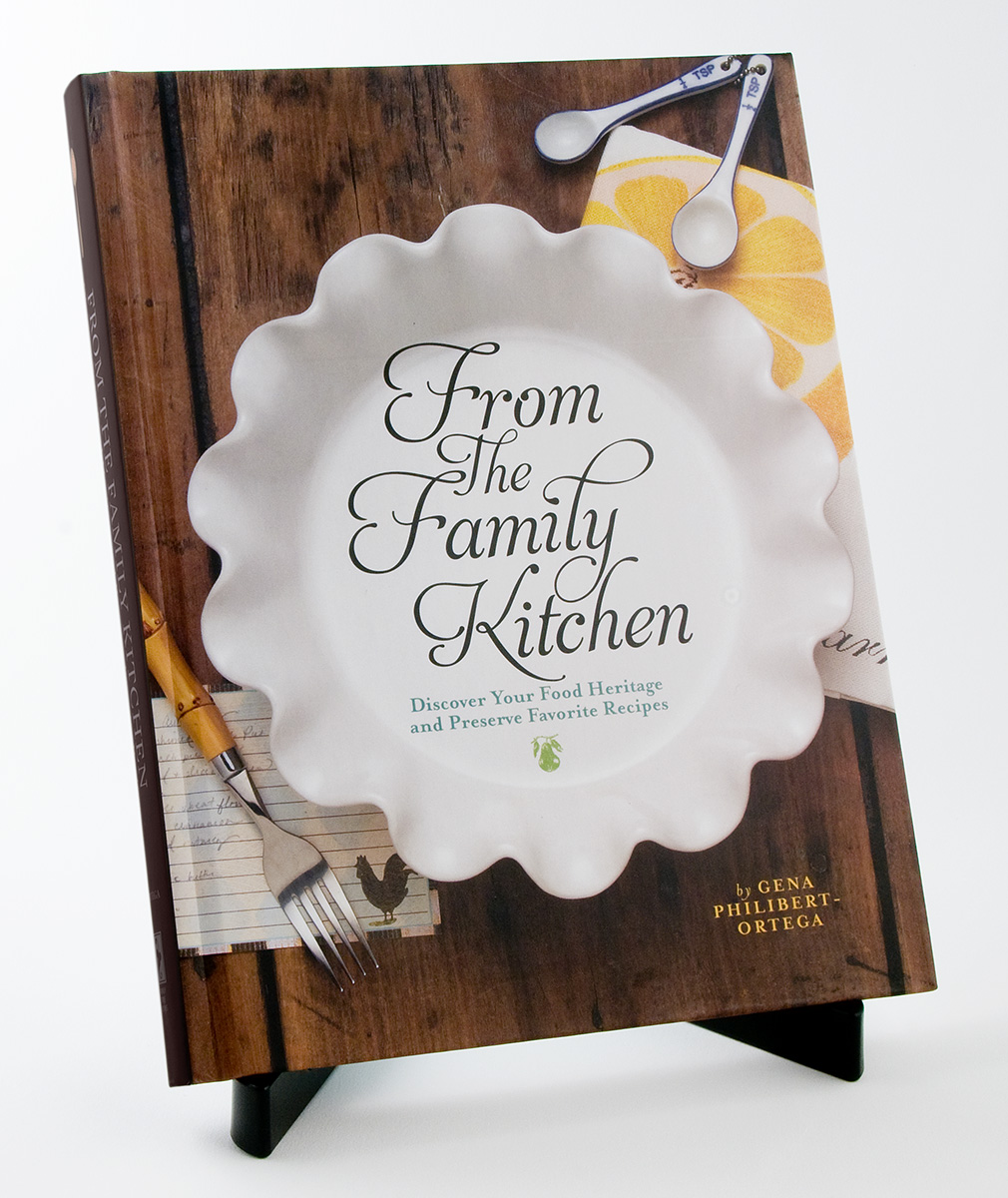
 From the Family Kitchen: Discover Your Food Heritage and Preserve Favorite Recipes
From the Family Kitchen: Discover Your Food Heritage and Preserve Favorite Recipes by Gena Philibert Ortega. Food is an important ingredient in every family’s history! This three-part keepsake recipe journal will help you celebrate your family recipes and record the precious memories those recipes hold. Listen to Lisa’s 2-part conversation with the author in the Genealogy Gems podcast episode 137 and 138. Watch a free video, “Food Family History,” with both of us on the Genealogy Gems YouTube channel.
by Gena Philibert Ortega. Food is an important ingredient in every family’s history! This three-part keepsake recipe journal will help you celebrate your family recipes and record the precious memories those recipes hold. Listen to Lisa’s 2-part conversation with the author in the Genealogy Gems podcast episode 137 and 138. Watch a free video, “Food Family History,” with both of us on the Genealogy Gems YouTube channel.
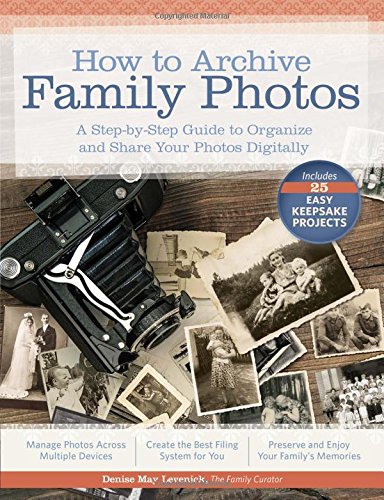 How to Archive Family Photos: A Step-by-Step Guide to Organize and Share Your Photos Digitally
How to Archive Family Photos: A Step-by-Step Guide to Organize and Share Your Photos Digitally by Denise Levenick. The Family Curator’s approach is so practical and forgiving: start where you are. Start small. Take your time. Do a few at a time. Use a consistent and simple file naming and digital file organizing scheme! Click here to listen to Lisa’s interview with her on the free Family Tree Magazine podcast.
by Denise Levenick. The Family Curator’s approach is so practical and forgiving: start where you are. Start small. Take your time. Do a few at a time. Use a consistent and simple file naming and digital file organizing scheme! Click here to listen to Lisa’s interview with her on the free Family Tree Magazine podcast.
 The Library of Congress Illustrated Timeline of the Civil War
The Library of Congress Illustrated Timeline of the Civil War by Margaret E. Wagner quotes vivid first-hand accounts. You’ll read about the smells of war, from baking to bodily functions. You’ll learn about the women behind the scenes whose lives were in constant upheaval and uncertainty. Comments from hospital workers describe the mighty effects of war on the wounded. Intermingled are the stories of free blacks, those being emancipated and black women and men who supported the Union effort as soldiers, nurses and more. It’s a fascinating blend of story and picture, told in a timeline format to help family historians put their ancestors’ experiences in context. For those of us who don’t have firsthand account by our ancestors, these voices help bring to life events and experiences our relatives may have faced. Also available in for the Kindle.
by Margaret E. Wagner quotes vivid first-hand accounts. You’ll read about the smells of war, from baking to bodily functions. You’ll learn about the women behind the scenes whose lives were in constant upheaval and uncertainty. Comments from hospital workers describe the mighty effects of war on the wounded. Intermingled are the stories of free blacks, those being emancipated and black women and men who supported the Union effort as soldiers, nurses and more. It’s a fascinating blend of story and picture, told in a timeline format to help family historians put their ancestors’ experiences in context. For those of us who don’t have firsthand account by our ancestors, these voices help bring to life events and experiences our relatives may have faced. Also available in for the Kindle.
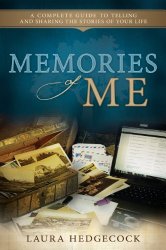
 Memories of Me: A Complete Guide to Telling and Sharing the Stories of Your Life
Memories of Me: A Complete Guide to Telling and Sharing the Stories of Your Life by Laura Hedgecock. This book helps you put the stories of your own past on paper and share them with loved ones. Genealogy Gems Premium members can listen to an interview with the author about the challenges and rewards of writing your life story in Genealogy Gems Premium Podcast episode 116.
by Laura Hedgecock. This book helps you put the stories of your own past on paper and share them with loved ones. Genealogy Gems Premium members can listen to an interview with the author about the challenges and rewards of writing your life story in Genealogy Gems Premium Podcast episode 116.
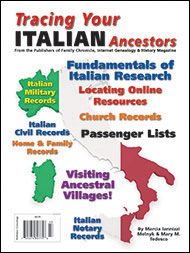 Tracing Your Italian Ancestors by Mary Tedesco. This 84-page guide has two important parts. There’s a section on using U.S. records to learn essentials about your family, and then a section on researching in Italian records. Click here to watch an interview with Mary Tedesco, a host of the popular U.S. television show Genealogy Roadshow.
Tracing Your Italian Ancestors by Mary Tedesco. This 84-page guide has two important parts. There’s a section on using U.S. records to learn essentials about your family, and then a section on researching in Italian records. Click here to watch an interview with Mary Tedesco, a host of the popular U.S. television show Genealogy Roadshow.
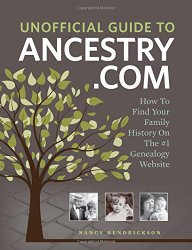 The Unofficial Guide to Ancestry.com: How to Find Your Family History on the No. 1 Genealogy Website
The Unofficial Guide to Ancestry.com: How to Find Your Family History on the No. 1 Genealogy Website by Nancy Hendrickson. Click here to listen to Lisa’s interview with the author on the Family Tree Magazine podcast.
by Nancy Hendrickson. Click here to listen to Lisa’s interview with the author on the Family Tree Magazine podcast.
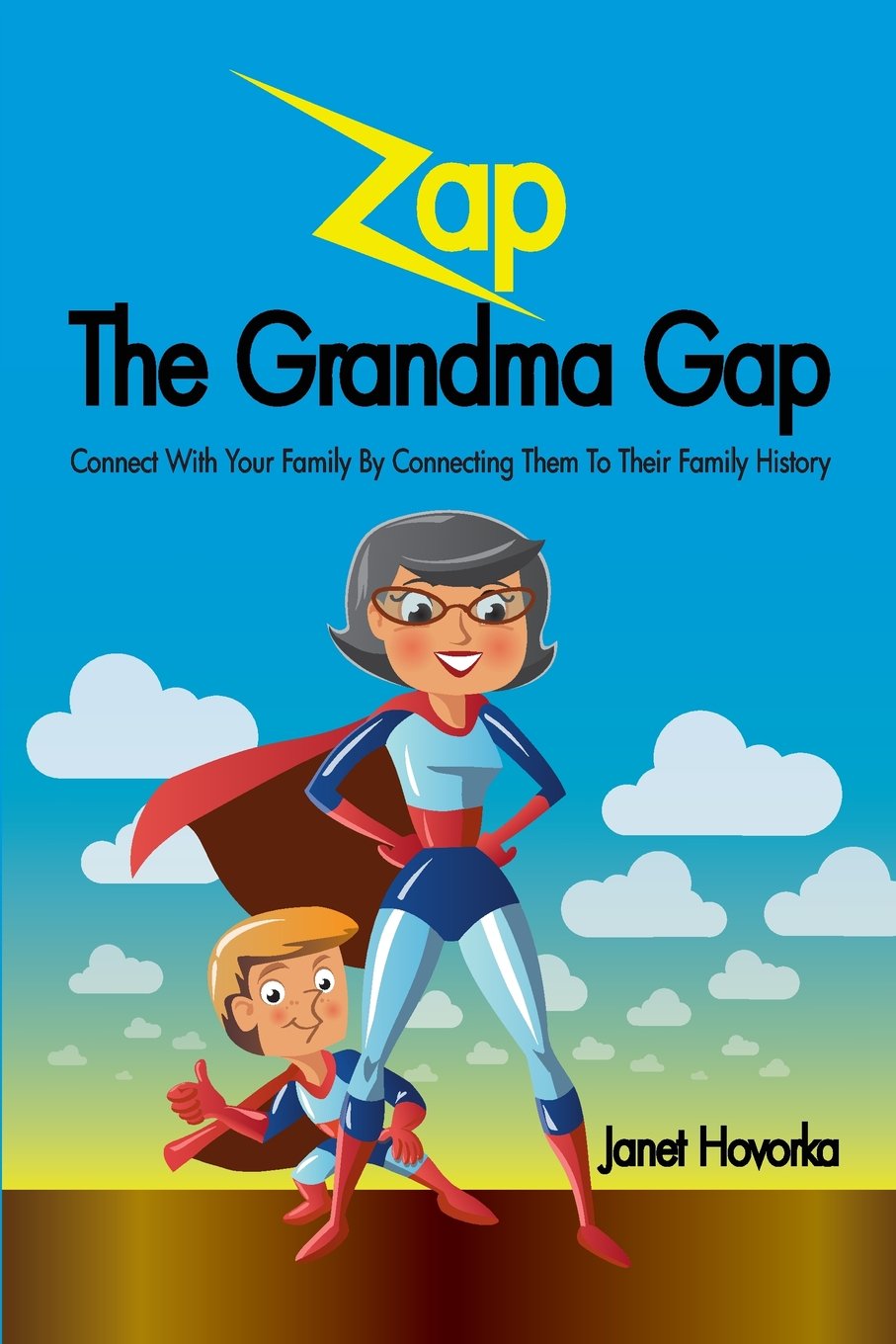 Zap the Grandma Gap: Connect with Your Family by Connecting Them to Their Family History by Janet Hovorka shares tried-and-tested activities for using family history to connect with children and grandchildren. Span the generation gap with these great games and ideas! Meet the author, see more of her kid-friendly family history titles and hear her suggestions in the free Genealogy Gems podcast episode 162.
Zap the Grandma Gap: Connect with Your Family by Connecting Them to Their Family History by Janet Hovorka shares tried-and-tested activities for using family history to connect with children and grandchildren. Span the generation gap with these great games and ideas! Meet the author, see more of her kid-friendly family history titles and hear her suggestions in the free Genealogy Gems podcast episode 162.
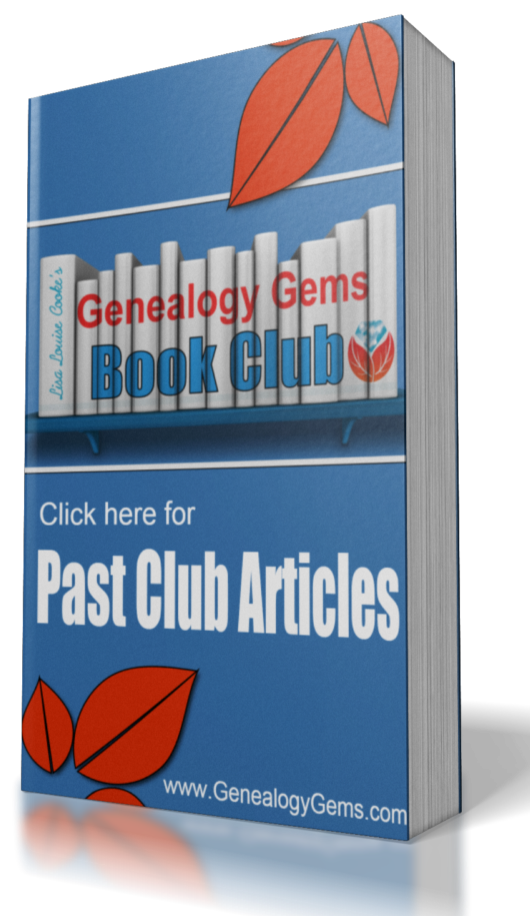 Find more fantastic titles as well as discussion and exclusive author interviews at the The Genealogy Gems Book Club.
Find more fantastic titles as well as discussion and exclusive author interviews at the The Genealogy Gems Book Club.
by Lisa Cooke | Mar 6, 2015 | Australian, British, Findmypast, images, Irish, Newspaper, Records & databases
 Beginning today, try FindMyPast for FREE –all weekend long!
Beginning today, try FindMyPast for FREE –all weekend long!
Over 2 billion historical records will be available to search beginning Friday, March 6 and ending Monday, March 9 (start and finish at midday London time (GMT)). Local subscribers will have World access during this time and World subscribers get an extra three days tacked onto their subscriptions.
What kinds of records are we talking about? According to FindMyPast:
- “Over 900 million census records from across the UK, USA and Ireland;
- Passenger lists for ships sailing to and from Europe, Australia, New Zealand, and the USA;
- Birth, marriage and death records dating back to the 18th century, and the largest online collection of UK parish records;
- The most comprehensive collection of UK military records anywhere online;
- The largest collection of Irish family history records available online;
- Historical newspapers from across the world, including more than 10 million British newspaper pages from as long ago as 1710;
- An easy to use online family tree builder which allows you to import and export your tree if you’ve built it elsewhere;
- Our automatic Hints feature, which automatically searches our records for you and suggests potential matches to the people you add to your family tree.”
You may also find these resources helpful:
Webinar on Finding Female Ancestors. To celebrate International Women’s Day, at 7am EST on Sunday 8th March, Findmypast will host a webinar on searching for women in historical records. Women are usually tougher to find than men in old records because a) they were mentioned much less frequently and b) their names changed with their marital status.
Getting Started Video. Findmypast has created a new Getting Started video which will be available to view beginning this weekend.
Find out more at Findmypast’s dedicated Free Weekend page.
by Diahan Southard | Mar 20, 2015 | 01 What's New, Digital Archives, Oral History, Records & databases
We learn about great new genealogy records online every week! On Fridays we round up a few for you. Watch for databases and documents that your ancestors might appear in–and get inspired by the types of records that may be out there for your family, waiting for you to discover. This week: Michigan death certificates; Zimbabwe death notices, wills and trusts and an oral history archive of New Zealand nursing.

MICHIGAN DEATHS. Images of Michigan death certificates from 1921-1939 are now available for free at Seeking Michigan. “The index for records from 1940-1952 will be made available in the next few weeks, with additional certificate images to be released each year as privacy restrictions are lifted (1940 images will be released in January 2016),” says a press release.
“Together with the records from 1897-1920 that have been available at the site for years, this collection makes Seeking Michigan the one-stop destination for more than 2.6 million free, publicly-available 20th century death records for Michigan ancestors.”
ZIMBABWE DEATH NOTICES. Over 130,000 indexed and browsable records from the Zimbabwe, Death notices, 1904–1976 are now available on FamilySearch. According to the description, “The records included in this collection consist of death notices and registers obtained from the National Archives at Harare and Salisbury, Zimbabwe. The collection includes indexes of closed and open files. The records are written in English. It appears those records that are labeled ADM are probably administrations which are separate from the death registers and they contain wills and living Trust records. Birth and death registrations did not include African tribal members until 1963.”
NEW ZEALAND ORAL HISTORIES. A new web archive of oral histories of New Zealand nurses is now available. “The aim of this website is to capture this rich history and create a resource that nurses, students, academics and family members can access in order to gain a better understanding of nursing history in New Zealand,” says the site’s home page. The site contains a “large collection of oral histories including abstracts, recordings, photos and other information. These histories have been collected from nurses who trained during the 1950s and 1960s and capture both the everyday elements of nursing practice along with some of the more unusual. Here you are able to listen to stories, read brief abstracts, and view photos of the nurses.” Got a story to tell? They are accepting new interviews. There’s also a section on hospitals and one on nursing uniforms.
 Not sure how to find record sets like these for YOUR family history? Here’s a tip! If your keyword searches for record types aren’t bringing up good results, try switching the order of the search terms. In English-language searches, word order counts.
Not sure how to find record sets like these for YOUR family history? Here’s a tip! If your keyword searches for record types aren’t bringing up good results, try switching the order of the search terms. In English-language searches, word order counts.
This tip comes to you courtesy of the book The Genealogist’s Google Toolbox, Second Edition by Lisa Louise Cooke–the fully-revised 2015 edition that’s packed with strategies that will dramatically improve your ability to find your family history online.
by Lisa Cooke | Mar 12, 2015 | 01 What's New, Health History, Inspiration, Writing Family History
Did you know that writing–and then re-writing–our personal stories can be good for our health? And even better for our future,
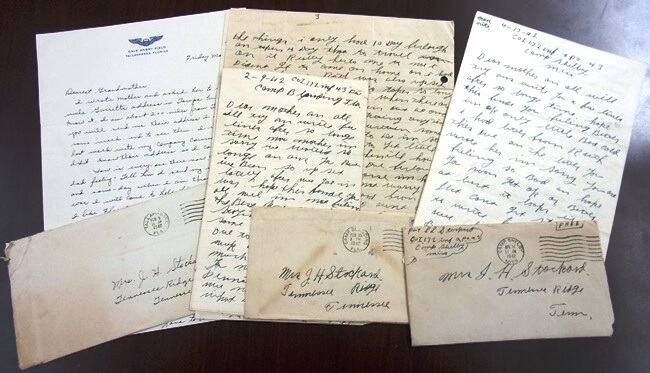
Courtesy Houston County, TN. Archives.especially if we are struggling to define that future optimistically.
So says a recent New York Times blog post. “We all have a personal narrative that shapes our view of the world and ourselves,” writes Tara Parker-Pope.
“But sometimes our inner voice doesn’t get it completely right. Some researchers believe that by writing and then editing our own stories, we can change our perceptions of ourselves and identify obstacles that stand in the way of better health.”
She’s not talking about writing childhood memories or ancestral anecdotes. In several studies, people who were struggling in an area were asked to write about it. Then they were presented with optimistic scenarios about how others had overcome difficulties. Those who rewrote their narratives were able to grab onto some of that optimism. They actually changed the way they thought of their “problem,” whatever it was. And long-term results in some studies showed that these people DID in fact improve.
We often see celebrities on Who Do You Think You Are? talk about how their ancestors’ lives inspire them or teach them new ways of understanding their own lives. Many who write their own family histories say the same thing. As we wrestle with memories or facts and how to present them in writing, we also interpret the past in new ways and, often, this new insight brings hope for a better future.
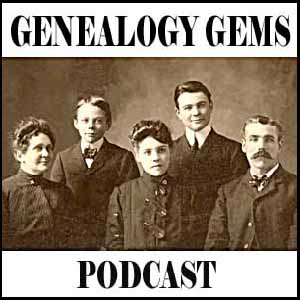 One more GREAT reason to write your life story and family history, don’t you think? Thanks to my brother Chris McClellan for sharing this blog post with me.
One more GREAT reason to write your life story and family history, don’t you think? Thanks to my brother Chris McClellan for sharing this blog post with me.
Listen as Lisa and I discuss different styles for writing about your family history in the FREE Genealogy Gems podcast episode 176. Or get inspired by the family history-themed books we love and share on our Genealogy Gems Book Club page. Click here for great suggestions on what to read!
 Recently I heard from Sue Neale, whose story offers a compelling reason to use Google Scholar for genealogy research! Read it below–then I’ll tell you a little more about Google Scholar.
Recently I heard from Sue Neale, whose story offers a compelling reason to use Google Scholar for genealogy research! Read it below–then I’ll tell you a little more about Google Scholar.
 Genealogist’s Google Toolbox has an all-new chapter on using Google Scholar. Among other things, I show you advanced search strategies and how to use Google Alerts with Google Scholar for continuous updates on your favorite search results. Click here
Genealogist’s Google Toolbox has an all-new chapter on using Google Scholar. Among other things, I show you advanced search strategies and how to use Google Alerts with Google Scholar for continuous updates on your favorite search results. Click here









 Zap the Grandma Gap: Connect with Your Family by Connecting Them to Their Family History by Janet Hovorka shares tried-and-tested activities for using family history to connect with children and grandchildren. Span the generation gap with these great games and ideas! Meet the author, see more of her kid-friendly family history titles and hear her suggestions in the free
Zap the Grandma Gap: Connect with Your Family by Connecting Them to Their Family History by Janet Hovorka shares tried-and-tested activities for using family history to connect with children and grandchildren. Span the generation gap with these great games and ideas! Meet the author, see more of her kid-friendly family history titles and hear her suggestions in the free  Find more fantastic titles as well as discussion and exclusive author interviews at the
Find more fantastic titles as well as discussion and exclusive author interviews at the 



